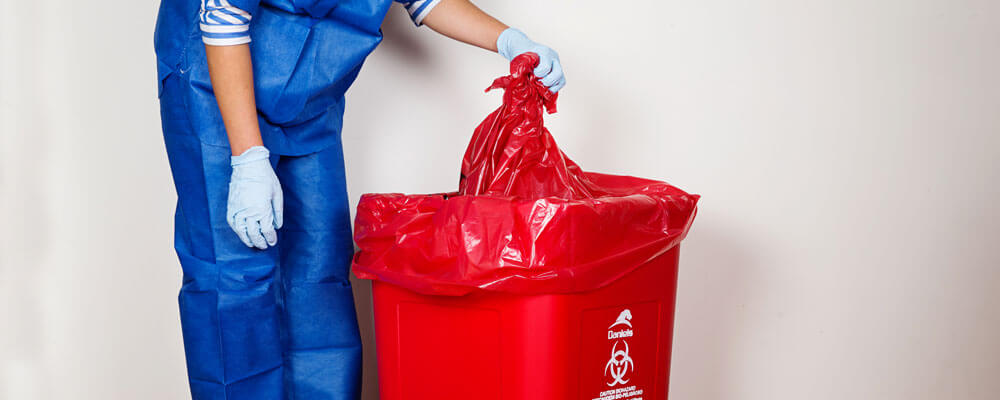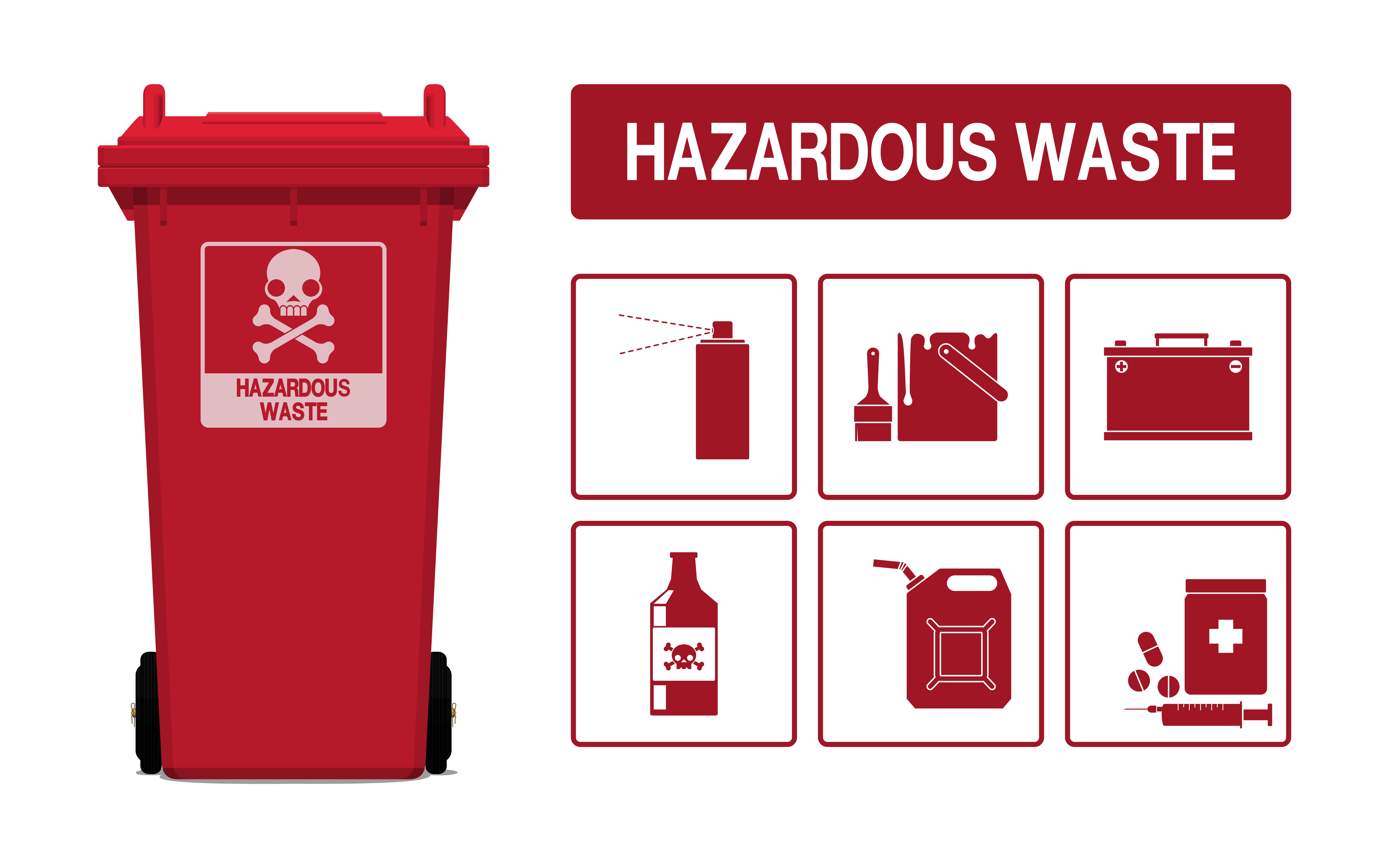Area Treatment: Smooth and Reliable Medical Waste Removal Near Me
Area Treatment: Smooth and Reliable Medical Waste Removal Near Me
Blog Article
Keep Ahead of Regulations: Expert Recommendations on Medical Garbage Disposal
In a world where the healthcare market is continuously progressing, it is imperative for clinical facilities to stay ahead of guidelines when it comes to the proper disposal of clinical waste. From understanding the different groups of medical waste to implementing the right collection and segregation methods, this discussion will offer valuable understandings and actionable ideas to assist facilities remain ahead of laws in the ever-changing landscape of clinical waste disposal.
Comprehending Medical Waste Categories
Recognizing clinical waste categories is important for proper disposal and monitoring in health care centers. Medical waste describes any type of waste generated by medical care activities that may pose a danger to public wellness or the atmosphere. It is essential to classify clinical waste precisely to guarantee its risk-free handling, disposal, treatment, and transportation.
There are a number of categories of medical waste that medical care facilities require to be acquainted with. One of the most typical categories include transmittable waste, pathological waste, sharps waste, pharmaceutical waste, and chemical waste. Each classification has details guidelines and policies for its appropriate monitoring and disposal.
Infectious waste includes materials contaminated with blood or other physical liquids, such as handwear covers, gowns, and laboratory cultures. Pathological waste describes human tissues, body organs, or body parts that call for unique handling and disposal. Sharps waste includes used needles, syringes, and other sharp objects that can cause injury and transfer infections. Drug waste consists of run out, extra, or polluted medications that require careful handling and disposal. Lastly, chemical waste consists of solvents, anti-bacterials, and other chemical compounds utilized in medical care centers.
Remaining Up-To-Date With Regulatory Adjustments
Remaining present with regulative modifications is crucial for healthcare centers to ensure conformity and appropriate monitoring of medical garbage disposal. medical waste removal service. With regulations continuously progressing, it is vital for medical care centers to remain current to prevent fines, fines, and potential damage to the atmosphere and public wellness
To stay ahead of regulative modifications, healthcare centers must develop a system for surveillance and monitoring updates. This can be done by registering for regulative newsletters, participating in seminars and workshops, and proactively joining industry organizations. Additionally, facilities should mark a team member or team liable for remaining notified and sharing info to pertinent stakeholders.
Routine interaction with regulatory companies is additionally essential. Medical care centers ought to establish connections with local, state, and federal companies to guarantee they are aware of any type of adjustments in policies that might influence their waste administration practices. This can be done with normal meetings, participation in public comment durations, and positive engagement with regulatory agencies.
Additionally, health care centers must think about partnering with waste management business that specialize in clinical waste disposal (medical waste disposal services with WasteX). These firms are typically fluent in the most up to date policies and can supply guidance and support to make sure compliance
Carrying Out Appropriate Collection and Segregation Methods
To effectively handle clinical garbage disposal, medical care facilities have to develop correct collection and segregation methods based on regulatory standards. Executing these approaches ensures the safe handling and disposal of possibly dangerous materials, shields the setting, and decreases the risk of injuries and infections to medical care workers and the general public.
Appropriate collection and partition approaches entail the use of designated containers and classifying systems. Healthcare facilities ought to offer clearly labeled containers for different sorts of medical waste, such as sharps, transmittable waste, pharmaceutical waste, and non-hazardous waste. These containers should be color-coded and plainly marked to stay clear of complication and promote simple recognition.
In addition, medical care centers ought to train their staff on the correct treatments for gathering and segregating clinical waste. This consists of enlightening them on the different kinds of waste, the ideal containers to make use of, and the value of complying with regulations and standards. Routine training sessions and refresher courses need to be carried out to guarantee that personnel stay up-to-date on finest practices.
Furthermore, medical care facilities need to establish a system for normal collection and disposal of medical waste. This may include partnering with certified waste administration companies that concentrate on clinical garbage disposal. These companies will certainly ensure that the gathered waste is delivered and taken care of in compliance with regulative requirements.
Selecting the Right Disposal Approaches

Incineration is one of one of the most reliable and common approaches for taking care of particular kinds of medical waste, such as pathological waste and sharps. It involves the why not try these out regulated burning of waste at high temperature levels, lowering it to ash. Nonetheless, incineration can release unsafe toxins right into the air and add to air pollution.

Chemical therapy involves the usage of chemicals to decontaminate and counteract the waste. Microwave therapy uses microwave power to warm and sanitize the waste.
Guaranteeing Compliance Through Documentation and Training
After very carefully considering the proper disposal methods for clinical waste, health care centers must make sure conformity with policies and lessen environmental effect by applying reliable documents and training procedures. This step is critical in maintaining a sustainable and safe setting for both medical care employees and the public.

Training is similarly vital in making certain conformity with laws. Healthcare employees who manage clinical waste needs to receive appropriate training on waste partition, taking care of, and disposal treatments. This training should cover topics such as the proper usage of individual safety equipment, identification of different types of waste, and the appropriate disposal methods for each and every waste category. By providing extensive training, health care facilities can equip their team to make enlightened choices and decrease the risk of improper garbage disposal.
Verdict
In verdict, staying ahead of policies in medical garbage disposal is important for health care facilities. medical waste removal. Recognizing the various classifications of clinical waste, staying upgraded with regulatory adjustments, executing appropriate collection and medical waste disposal services with WasteX partition techniques, picking the suitable disposal methods, and ensuring conformity through paperwork and training are all necessary steps. By adhering to these standards, health care organizations can effectively take care of and get rid of of clinical waste in a safe and accountable fashion
From recognizing the various groups of clinical waste to executing the right collection and partition methods, this discussion will supply useful understandings and actionable tips to assist centers stay ahead of laws in the ever-changing landscape of medical waste disposal. - medical waste disposal services with WasteX
The most typical categories include infectious waste, pathological waste, click resources sharps waste, pharmaceutical waste, and chemical waste. Medical care facilities ought to give clearly identified containers for different types of clinical waste, such as sharps, contagious waste, pharmaceutical waste, and non-hazardous waste. Health care facilities ought to establish a comprehensive system to tape-record and track all elements of clinical waste disposal, consisting of kinds of waste generated, amounts, and disposal techniques made use of. Health care employees that take care of clinical waste should receive ideal training on waste segregation, dealing with, and disposal treatments.
Report this page